List of authoritarian regimes supported by the United States
https://ipfs.io/ipfs/QmXoypizjW3Wkn...n_regimes_supported_by_the_United_States.html
Over the last century, the United States government has often provided, and continues to provide today, financial assistance, education, arms, military training and technical support to numerous anti-leftist and anti-Islamist authoritarian regimes across the world. A variety of reasons have been provided to justify the apparent contradictions between support for dictators and the democratic ideals expressed in the United States Constitution.
Prior to the Russian Revolution, support for dictators was often based on furthering American economic and political priorities, such as opening foreign markets to American manufacturers. Following the rise of communism, the United States government also began to support authoritarian regimes that it felt were combating movements aligned with communism, including socialist and democratic socialist movements, especially in Latin America.[1][2] Such assistance continued despite the belief expressed by many that this contradicted the political ideals espoused by the US during the Cold War.[3] Support was also geared toward ensuring a conducive environment for American corporate interests abroad, such as the United Fruit Company or Standard Oil, especially when these interests came under threat from democratic governments.[4][3] Support for authoritarian regimes has been justified under various ideological frameworks as well, including the Truman Doctrine, the Kirkpatrick Doctrine and the "War on Drugs".[4]
From the 1980s onwards, the United States government began to fear that its interests would be threatened by the increasingly popular Islamist movements in the Middle East, and began to work to secure cooperative authoritarian regimes in the region, while isolating, weakening, or removing, uncooperative ones.[5] In recent years, many policy analysts and commentators have expressed support for this type of policy, with some believing that regional stability is more important than democracy.[6][7] The United States continues to support authoritarian regimes today. However, international relations scholar David Skidmore believes that increased public pressure is motivating a shift away from supporting authoritarian regimes, and towards supporting more consensual regimes instead.[8]
1991–present
 Azerbaijan Heydar Aliyev; Ilham Aliyev[9][10]
Azerbaijan Heydar Aliyev; Ilham Aliyev[9][10]
1992–present
 Kazakhstan Nursultan Nazarbayev[11][12]
Kazakhstan Nursultan Nazarbayev[11][12]
1959–present
 Singapore People's Action Party[13][13][14]
Singapore People's Action Party[13][13][14]
1984–present
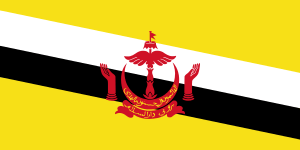 Brunei Hassanal Bolkiah[15][16][17][18]
Brunei Hassanal Bolkiah[15][16][17][18]
2011–present
 Vietnam Trương Tấn Sang[19]
Vietnam Trương Tấn Sang[19]
2014–present
 Thailand Prayut Chan-o-cha[20]
Thailand Prayut Chan-o-cha[20]
1994–present
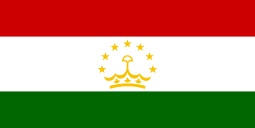 Tajikistan Emomali Rahmon[19]
Tajikistan Emomali Rahmon[19]
2006–present
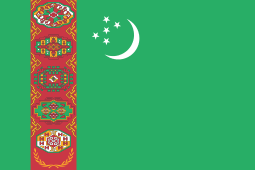 Turkmenistan Gurbanguly Berdimuhamedow[19]
Turkmenistan Gurbanguly Berdimuhamedow[19]
1945–present
 Saudi Arabia House of Saud[21][22][23]
Saudi Arabia House of Saud[21][22][23]
1999–present
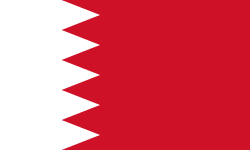 Bahrain Hamad bin Isa Al Khalifa[24]
Bahrain Hamad bin Isa Al Khalifa[24]
1972–present
 Qatar House of Thani[25][26]
Qatar House of Thani[25][26]
1970–present
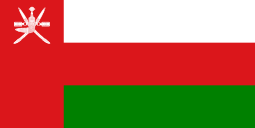 Oman Qaboos bin Said al Said[23]
Oman Qaboos bin Said al Said[23]
1954–present
 Jordan Hashemite Dynasty[27][28]
Jordan Hashemite Dynasty[27][28]
1971–present
 United Arab Emirates United Arab Emirates[29]
United Arab Emirates United Arab Emirates[29]
2014–present
 Egypt Abdel Fattah el-Sisi[30]
Egypt Abdel Fattah el-Sisi[30]
1777–present
 Morocco Alaouite dynasty[31]
Morocco Alaouite dynasty[31]
1999–present
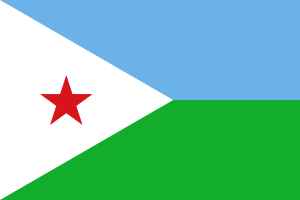 Djibouti Ismaïl Omar Guelleh[32][33]
Djibouti Ismaïl Omar Guelleh[32][33]
1979–present
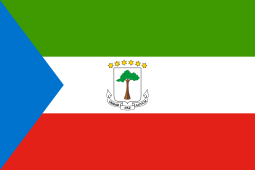 Equatorial Guinea Teodoro Obiang Nguema Mbasogo[19]
Equatorial Guinea Teodoro Obiang Nguema Mbasogo[19]
1982–present
 Cameroon Paul Biya[34][35]
Cameroon Paul Biya[34][35]
1990–present
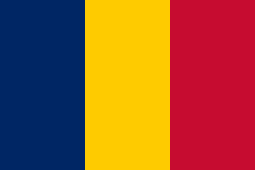 Chad Idriss Déby[36]
Chad Idriss Déby[36]
1986–present
 Uganda Yoweri Museveni[37]
Uganda Yoweri Museveni[37]
2000–present
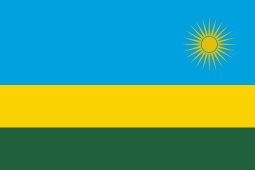 Rwanda Paul Kagame[38]
Rwanda Paul Kagame[38]
Past regimes.
1876–1911
.svg.png) Mexico Porfirio Díaz[42] During the Porfiriato, tensions between the U.S. and Mexico were high.
Mexico Porfirio Díaz[42] During the Porfiriato, tensions between the U.S. and Mexico were high.
1929–2000
 Mexico Institutional Revolutionary Party[43]
Mexico Institutional Revolutionary Party[43]
1932–1944
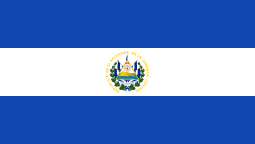 El Salvador Maximiliano Hernández Martínez[44]
El Salvador Maximiliano Hernández Martínez[44]
1933–1949
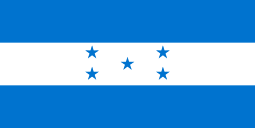 Honduras Tiburcio Carías Andino[45]
Honduras Tiburcio Carías Andino[45]
1950–1958
.svg.png) Venezuela Marcos Pérez Jiménez[46]
Venezuela Marcos Pérez Jiménez[46]
1908–1935
.svg.png) Venezuela Juan Vicente Gómez[47]
Venezuela Juan Vicente Gómez[47]
1898–1920
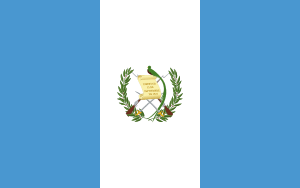 Guatemala Manuel Estrada Cabrera[48]
Guatemala Manuel Estrada Cabrera[48]
1931–1944
 Guatemala Jorge Ubico[48]
Guatemala Jorge Ubico[48]
1948–1956
 Peru Manuel Odria[49]
Peru Manuel Odria[49]
1952–1959
 Cuba Fulgencio Batista[50]
Cuba Fulgencio Batista[50]
1930–1961
 Dominican Republic Rafael Trujillo[51] Later overthrown with at least some aid from the CIA.[52]
Dominican Republic Rafael Trujillo[51] Later overthrown with at least some aid from the CIA.[52]
1954–1986
 Guatemala Efraín Ríos Montt and other Juntas[53][54][55]
Guatemala Efraín Ríos Montt and other Juntas[53][54][55]
See also: 1954 Guatemalan coup d'état
1963–1982
 Honduras Oswaldo López Arellano and other Juntas[56][57]
Honduras Oswaldo López Arellano and other Juntas[56][57]
1979–1982
 El Salvador Revolutionary Government Junta of El Salvador[58]
El Salvador Revolutionary Government Junta of El Salvador[58]
1971–1978
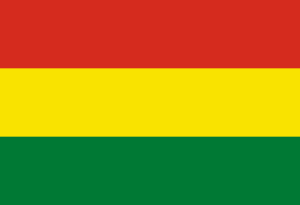 Bolivia Hugo Banzer[59]
Bolivia Hugo Banzer[59]
1973–1985
 Uruguay Civic-military dictatorship of Uruguay[60][61]
Uruguay Civic-military dictatorship of Uruguay[60][61]
1976–1983
 Argentina National Reorganization Process[62][63]
Argentina National Reorganization Process[62][63]
1964–1985
 Brazil Brazilian military government[41][64]
Brazil Brazilian military government[41][64]
1936–1979
 Nicaragua Somoza family[65]
Nicaragua Somoza family[65]
1957–1971
.svg.png) Haiti François Duvalier[66]
Haiti François Duvalier[66]
1971–1986
.svg.png) Haiti Jean-Claude Duvalier[66]
Haiti Jean-Claude Duvalier[66]
1968–1981
 Panama Omar Torrijos[67]
Panama Omar Torrijos[67]
1983–1989
 Panama Manuel Noriega[67] Later overthrown by U.S. in Operation Just Cause in 1989.
Panama Manuel Noriega[67] Later overthrown by U.S. in Operation Just Cause in 1989.
1954–1989
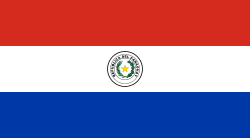 Paraguay Alfredo Stroessner[68][69]
Paraguay Alfredo Stroessner[68][69]
1973–1990
 Chile Augusto Pinochet[70][71]
Chile Augusto Pinochet[70][71]
1992–2000
 Peru Alberto Fujimori[72]
Peru Alberto Fujimori[72]
1948–1960
 South Korea[73] Syngman Rhee
South Korea[73] Syngman Rhee
1958–1969
 Pakistan Ayub Khan See also: Pakistan–United States relations during the Cold War era.
Pakistan Ayub Khan See also: Pakistan–United States relations during the Cold War era.
1961–1979
 South Korea Park Chung-hee[74]
South Korea Park Chung-hee[74]
1979–1988
 South Korea Chun Doo-hwan[75]
South Korea Chun Doo-hwan[75]
1955–1963
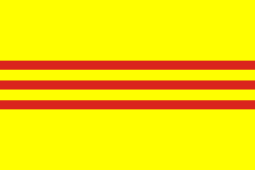 South Vietnam Ngo Dinh Diem[76] Later assassinated in a U.S.-backed coup. See also: Cable 243, Arrest and assassination of Ngo Dinh Diem.
South Vietnam Ngo Dinh Diem[76] Later assassinated in a U.S.-backed coup. See also: Cable 243, Arrest and assassination of Ngo Dinh Diem.
1970–1975
 Cambodia Lon Nol[77]
Cambodia Lon Nol[77]
1969–1971
 Pakistan Yahya Khan[78][79][80]
Pakistan Yahya Khan[78][79][80]
1941–1979
.svg.png) Iran Mohammad Reza Pahlavi[81][82] See also: 1953 Iranian coup d'état.
Iran Mohammad Reza Pahlavi[81][82] See also: 1953 Iranian coup d'état.
1965–1986
.svg.png) Philippines Ferdinand Marcos[83][84]
Philippines Ferdinand Marcos[83][84]
1978–1988
 Pakistan Muhammad Zia-ul-Haq[85]
Pakistan Muhammad Zia-ul-Haq[85]
1963–1967
%3B_Flag_of_Syria_(1963-1972).svg.png) Iraq Abdul Salam Arif, Abdul Rahman Arif[86]
Iraq Abdul Salam Arif, Abdul Rahman Arif[86]
1982–1990
%3B_Flag_of_Syria_(1963-1972).svg.png) Iraq Saddam Hussein[87] Later seen as an enemy of the U.S. in the Gulf War and deposed in the Iraq War. See: United States support for Iraq during the Iran–Iraq war.
Iraq Saddam Hussein[87] Later seen as an enemy of the U.S. in the Gulf War and deposed in the Iraq War. See: United States support for Iraq during the Iran–Iraq war.
1967–1998
 Indonesia Suharto[88][89] See also: Allen Lawrence Pope.
Indonesia Suharto[88][89] See also: Allen Lawrence Pope.
1949–1953
.svg.png) Syria al-Za'im-Shishkali-al-Hinnawi Junta[90][91][92] See: Husni al-Za'im, Adib Shishakli, Sami al-Hinnawi.
Syria al-Za'im-Shishkali-al-Hinnawi Junta[90][91][92] See: Husni al-Za'im, Adib Shishakli, Sami al-Hinnawi.
1999–2008
 Pakistan Pervez Musharraf[93]
Pakistan Pervez Musharraf[93]
1990–2016
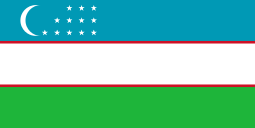 Uzbekistan Islam Karimov[19]
Uzbekistan Islam Karimov[19]
1990–2005
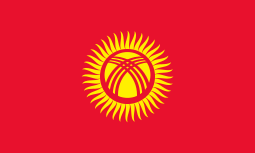 Kyrgyzstan Askar Akayev[94]
Kyrgyzstan Askar Akayev[94]
1990–2012
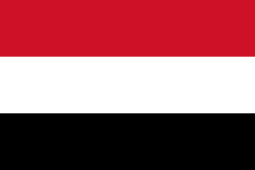 Yemen Ali Abdullah Saleh[95]
Yemen Ali Abdullah Saleh[95]
1969–1985
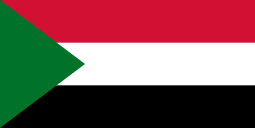 Sudan Gaafar Nimeiry[96]
Sudan Gaafar Nimeiry[96]
1978–1991
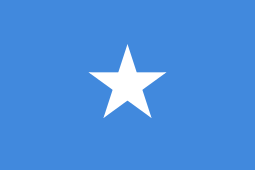 Somalia Siad Barre[97]
Somalia Siad Barre[97]
1980–1990
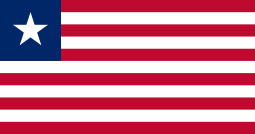 Liberia Samuel Doe[98]
Liberia Samuel Doe[98]
1991–2012
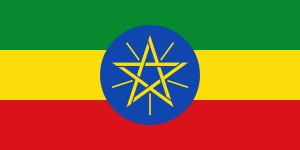 Ethiopia Meles Zenawi[19]
Ethiopia Meles Zenawi[19]
1965–1997
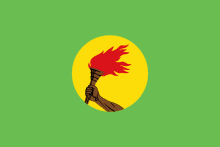 Zaire
Zaire
.svg.png) Democratic Republic of the Congo Mobutu Sese Seko[99][100]
Democratic Republic of the Congo Mobutu Sese Seko[99][100]
1982–1990
 Chad Hissène Habré[101]
Chad Hissène Habré[101]
1981–2011
 Egypt Hosni Mubarak[102]
Egypt Hosni Mubarak[102]
2012–2013
 Egypt Mohamed Morsi[103]
Egypt Mohamed Morsi[103]
1948–1994
.svg.png) South Africa National Party (South Africa)[104][105]
South Africa National Party (South Africa)[104][105]
1987–2011
 Tunisia Zine El Abidine Ben Ali[106]
Tunisia Zine El Abidine Ben Ali[106]
1936–1975
.svg.png) Spain Francisco Franco[107] At times opposed diplomatically because of fascist leanings. See: Francoist Spain.
Spain Francisco Franco[107] At times opposed diplomatically because of fascist leanings. See: Francoist Spain.
1933–1974
 Portugal António de Oliveira Salazar[108] See Estado Novo (Portugal)
Portugal António de Oliveira Salazar[108] See Estado Novo (Portugal)
1941–1945
.svg.png) Soviet Union Joseph Stalin[109] Later considered an enemy of the US. See Cold War.
Soviet Union Joseph Stalin[109] Later considered an enemy of the US. See Cold War.
1948–1980
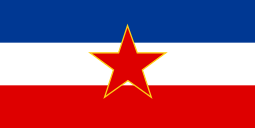 Yugoslavia Josip Broz Tito[110] See Informbiro period.
Yugoslavia Josip Broz Tito[110] See Informbiro period.
1967–1974
.svg.png) Greece Greek military junta[111]
Greece Greek military junta[111]
1980–1989
 Turkey Turkish military junta[112]
Turkey Turkish military junta[112]
1969–1989
.svg.png) Romania Nicolae Ceaușescu[113]
Romania Nicolae Ceaușescu[113]
1941–1975
 Republic of China Chiang Kai-shek[114]
Republic of China Chiang Kai-shek[114]
1948–1957
 Thailand Plaek Phibunsongkhram[115]
Thailand Plaek Phibunsongkhram[115]
1963–1973
 Thailand Thanom Kittikachorn[116]
Thailand Thanom Kittikachorn[116]
1958–1963
 Thailand Sarit Thanarat[117]
Thailand Sarit Thanarat[117]

1992–present

1959–present

1984–present

2011–present

2014–present

1994–present

2006–present

1945–present

1999–present

1972–present

1970–present

1954–present

1971–present

2014–present

1777–present

1999–present

1979–present

1982–present

1990–present

1986–present

2000–present

Past regimes.
1876–1911
.svg.png)
1929–2000

1932–1944

1933–1949

1950–1958
.svg.png)
1908–1935
.svg.png)
1898–1920

1931–1944

1948–1956

1952–1959

1930–1961

1954–1986

See also: 1954 Guatemalan coup d'état
1963–1982

1979–1982

1971–1978

1973–1985

1976–1983

1964–1985

1936–1979

1957–1971
.svg.png)
1971–1986
.svg.png)
1968–1981

1983–1989

1954–1989

1973–1990

1992–2000

1948–1960

1958–1969

1961–1979

1979–1988

1955–1963

1970–1975

1969–1971

1941–1979
.svg.png)
1965–1986
.svg.png)
1978–1988

1963–1967
%3B_Flag_of_Syria_(1963-1972).svg.png)
1982–1990
%3B_Flag_of_Syria_(1963-1972).svg.png)
1967–1998

1949–1953
.svg.png)
1999–2008

1990–2016

1990–2005

1990–2012

1969–1985

1978–1991

1980–1990

1991–2012

1965–1997

.svg.png)
1982–1990

1981–2011

2012–2013

1948–1994
.svg.png)
1987–2011

1936–1975
.svg.png)
1933–1974

1941–1945
.svg.png)
1948–1980

1967–1974
.svg.png)
1980–1989

1969–1989
.svg.png)
1941–1975

1948–1957

1963–1973

1958–1963

https://ipfs.io/ipfs/QmXoypizjW3Wkn...n_regimes_supported_by_the_United_States.html

